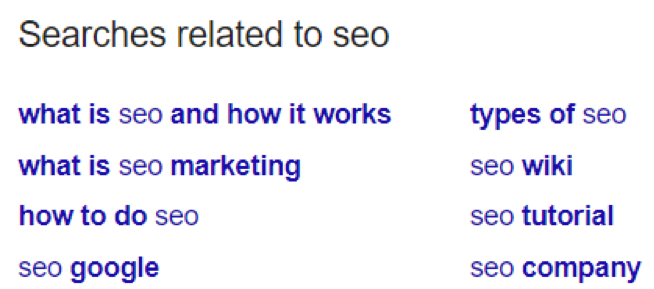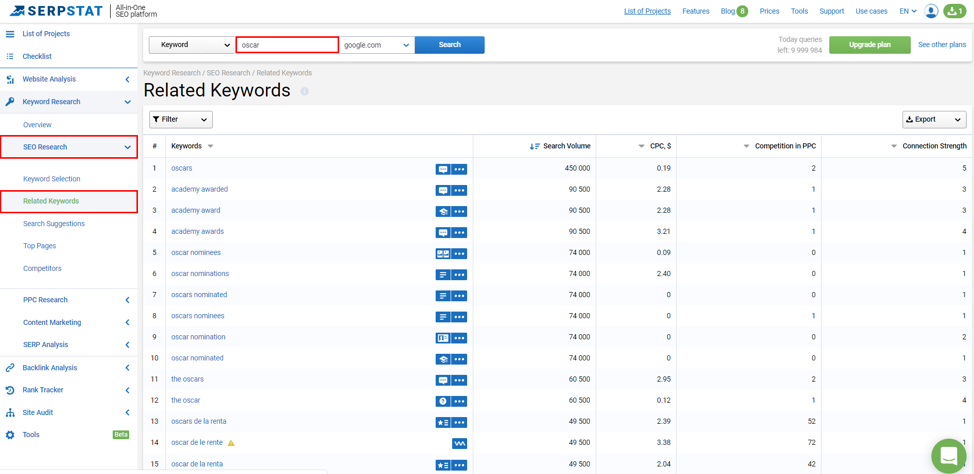Find out whether Latent Semantic Indexing has such an impact on your SEO and what you should do to improve your keyword research
Before writing this post, I’ve noticed wide discussions on Latent Semantic Indexing (LSI) and its effect on SEO. Some sources state it’s crucial to select what’s called LSI keywords to boost your rankings. Others say LSI has no impact on the positions your website takes. After reading different opinions on the topic, I’ve realized there are lots of people who don't know what LSI actually represents.
Download our Individual Member Resource – Successful SEO guide
This 7 steps SEO guide is one of our most popular and rightly so. If you get it right, SEO can be a fantastic, relatively low-cost way to drive quality visitors who want to do business with you to your site.
Access the
If you’re interested in SEO tendencies, you’ve obviously heard of the Latent Semantic Indexing. Being discussed by many influencers, LSI keywords are almost regarded as a panacea. If you want to find out whether LSI has such an impact on your SEO and what you should do to improve your keyword research, this article is for you.
What is Latent Semantic Indexing?
To find out how (or whether) LSI affects search rankings, let’s identify what Latent Semantic Indexing means. It’s a method using a mathematical technique to identify relationships between the words and the concepts contained in a piece of content. As such a description doesn’t say a lot to the average user, let me provide a more practical description.

In a nutshell, the Latent Semantic Indexing method not only records keywords the content contains but also examines the text as a whole. It lets you analyze which other pieces of content contain the same words. Although the algorithm doesn’t understand the meaning of the terms, the whole pattern lets it master the contextual nature of the language. The method resembles the way a human being classifies documents by looking at their content.
Of course, LSI has some significant disadvantages:
- The method doesn’t consider word order and discards all the prepositions and conjunctions.
- Words are considered to have only one meaning.
- The meaning of the text may not coincide with the words meaning. Irony and underlying ideas aren’t recognized.
Does Latent Semantic Indexing affect SEO?
So, we’ve got the algorithm that can figure out the content of pages and provide a deeper understanding of the connection between language and context. Does it mean search engines use it to identify the most relevant results to provide the answers to specific search queries? Well, even though lots of articles on the web say yes, some expert opinions have made me doubt if this is the case.
First of all, there is no proof search engines are using LSI these days. Google has never admitted this fact, while Yandex even announced publicly it doesn't use an LSI algorithm. Yes, Latent Semantic Indexing used to help search engines see the differences in the meanings of a word, but this was in the late 1980s. What are the chances the information is still up-to-date?
Latent Semantic Indexing isn’t the only algorithm applicable to find out semantically related topics. I mean LSI is just one method among the list of others such as Word2Vec, GloVe, etc. Just as 'iPhone' isn’t the name for all available smartphones, LSI shouldn’t be considered to be a Google algorithm affecting SEO just because it’s an algorithm that exists. This is why it’s pretty senseless to assume search engines prefer old technologies and techniques to new ones.
Here’s what Bill Slawski tells on this topic:
“Google does attempt to index synonyms and other meanings for words. But it isn’t using LSI technology to do that. Calling it LSI is misleading people. Google has been offering synonym substitutions and query refinements based upon synonyms since at least 2003, but that doesn’t mean that it is using LSI. It would be like saying that you are using a smart telegraph device to connect to the mobile web. A telegraph was used to send long distance messages, but it isn’t a phone. Technologies change and evolve, and Google has developed its own semantic technology that is not LSI even though both are based upon Semantics”.
What about ‘LSI keywords’?
If you search for ‘LSI keywords’ on Google, it’ll provide you with 892,000 results on the topic. You’ll find LSI keyword generators, guides to implementing these keywords into your content and tips to how to improve your SEO with LSI. After all, inexperienced users will be convinced that the mystic LSI words will have an effect on their rankings.
Are they mistaken? Both yes and no. Why yes? We’ve already concluded search engines don’t use LSI technology, so the name ‘LSI keywords’ makes no sense. Why no? Talking about ‘LSI keywords’ people mean topically related words and sometimes synonyms. Indeed, these words matter in terms of how search engines see and rank your content.
What’s next?
Regardless of the fact that Latent Semantic Indexing has nothing to do with your website, the need to help search engines understand your content and rank it for the relevant queries still exists. Related words are those (except your keywords) that may provide you with the desirable result.
How to find related words
If you want to improve the crawlability of your site, incorporating topically-related words and synonyms is an efficient practice. As I’ve already mentioned, there are two types of words you should select considering your content subject, and not only its target keyword:
- The words that mean the same as your keyword. If your keyword is ‘idea,’ the synonyms will be: ‘meaning,’ ‘subject,’ ‘concept,’ etc.
- Related words, so terms and phrases semantically connected to the query. If the keyword is ‘SEO,’ the related words will be: ‘keyword research,’ ‘SERP,’ ‘link profile,’ etc.
Research
It’s pretty easy to find such words when you know where to look for them. The first method is always handy, and you already know it. It’s a Google search. When you search for your topic, scroll to the bottom of the page, and you’ll see the following box:

As Google already associates these phrases with the topic, it’s worth using some of these phrases for your page.
Of course, the list is short enough and it’s essential to continue searching using other tools, such as Serpstat, Moz, or Ahrefs. If you choose Serpstat, enter your target keyword or phrase, go to SEO Research > Related Keywords, and the service will provide you with the list of phrases semantically related to your keyword:

The most important thing is that the list consists not only of the phrases containing your main keyword but of all the related words people usually search for on the topic. You can filter the phrases by search volume, cost per click, or connection strength, and select which are the most appropriate for your goals.
How to implement them
Although related words aren’t exactly your keywords, it’s still pretty easy to overuse them and get penalized for doing so. Remember that user experience is one of the most important ranking factors.
If the texts just dust an audience’s eyes and provide little useful information, users may leave your page too quickly. Even though your content is littered with related words, the bounce rate will increase dramatically and your positions will take a dip. Therefore, there are some ‘rules’ when it comes to implementing related words into your content to improve (and not to ruin) your SEO strategy:
- Use synonyms and related phrases very carefully.
- Use a fixed ratio of the selected phrases and the other words in your text.
- Think of natural speech. When your text is ready, read it again and ask yourself: ‘Would I say like this in real life?’ If the answer is positive, move on.
- Add them into your meta title and description. As using keywords several times in your title and description isn’t a good idea at all, related words will help you widen your opportunities.
Summing up
Of course, using an LSI term doesn’t damage your SEO, but all the fuss around ‘LSI keywords’ and the concept itself causes lots of questions. That’s why in order not to confuse anybody and damage customer trust, stop doing things ‘just because we can.’
When it comes to what we called LSI keywords, but what we should simply call related words, they aren’t a cure-all. They are useful enough but won't solve your SEO troubles. Remember that adding related words won’t necessarily mean your website's overall ranking improves. They’ll help it rank for the relevant results, which is even more important.
Inna Yatsyna is a Brand and Community Manager at
Serpstat, an all-in-one SEO platform. Inna is experienced in digital and content marketing, along with SEO. She’s fond of writing useful posts, helping people, reading, traveling, and animals (especially dogs).









